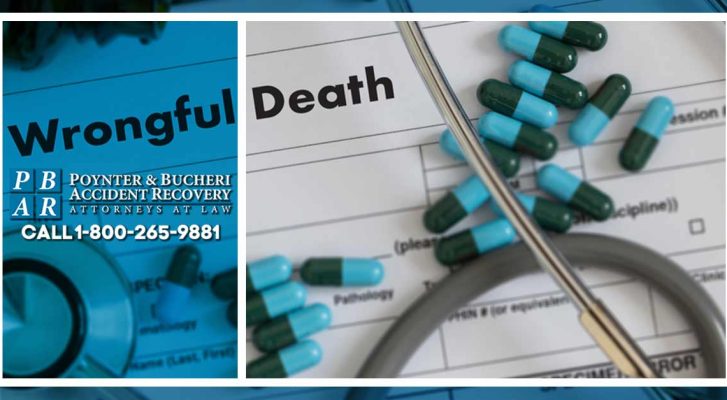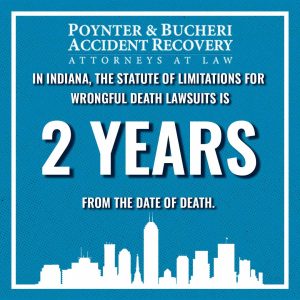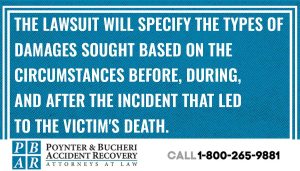
Indiana Wrongful Death Damages Cap: What You Need to Know

Losing a loved one due to someone else’s actions is deeply distressing, often resulting in emotional turmoil and practical challenges. Beyond the personal grief, there are financial implications such as lost income, household support, and childcare.
Seeking justice and compensation through a wrongful death lawsuit can provide financial relief in these difficult circumstances. If you’re considering filing a wrongful death lawsuit in Indiana, it’s essential to understand the process and the state’s laws regarding compensation limits.
Indiana law does indeed impose caps, known as “damage caps,” on the amount of money recoverable in wrongful death cases. This article helps you understand what wrongful death is, when you have grounds for a lawsuit, and the limits are in the most common types of wrongful death lawsuits.
How Does Indiana Define Wrongful Death?
In Indiana, a wrongful death is legally defined as the unfortunate circumstance where an individual dies as a result of someone else’s negligent behavior or intentional actions.
You’ll have to do more than prove negligence before the individual’s death. The law also requires your attorney to establish a direct link between the negligent or reckless conduct of another party and the victim’s death.
A proficient wrongful death attorney possesses the ability to present evidence to the court, effectively illustrating how the actions of another individual or entity led to the tragic loss of your loved one.
What Is a Wrongful Death Lawsuit?
A wrongful death lawsuit allows survivors to seek justice on behalf of the deceased. Compensation, awarded to the victim’s estate, can help cover expenses and losses. The personal representative of the estate, typically named in the victim’s will, has the authority to file the lawsuit.
The most common events that provide grounds for a wrongful death lawsuits include:
- Road accidents
- Criminal assaults
- Slip and fall accidents
- Defective products, including pharmaceuticals and medical devices
- Workplace accidents
- Medical malpractice
Who Can File a Wrongful Death Lawsuit?

In Indiana, the right to file a wrongful death lawsuit is typically granted to specific individuals who have a legal relationship with the deceased. These eligible parties include the surviving spouse, children, parents, or other dependents of the deceased.
The law prioritizes those most directly impacted by the death, and the surviving spouse is usually given primary authority to bring such legal action. If there are surviving children, they may also have the right to file a lawsuit, either independently or in conjunction with the surviving spouse. In cases where the deceased was unmarried or had no children, the parents of the deceased may be entitled to file a wrongful death lawsuit.
Other dependents who relied on the deceased for financial support or care may be eligible to pursue legal action to recover damages. These dependents could include stepchildren, adopted children, or individuals who were financially dependent on the deceased at the time of death. Wrongful death damages aim to ensure that those most affected by the loss can seek justice and receive compensation.
How Do You Prove There Is an At-Fault Party in Your Loved One’s Death?
Your attorney must establish a direct link between the defendant’s actions or negligence and the death of the victim. This requires demonstrating that the defendant’s conduct was a substantial factor in causing the death.
The at-fault party may be legally liable for the death through:
- Negligence
- Intentional actions
- Wrongful behavior
What Is the Indiana Wrongful Death Damages Cap for Lawsuits?
- Unmarried Adults 23 and Older: For individuals in this category with no dependents, the maximum compensation, including medical and funeral expenses, is capped at $300,000.
- Married Adults or Those with Dependents: There is no cap on compensation for individuals who were married, had children, or were responsible for dependents.
- Children: Compensation limits do not apply to cases involving the death of a child, as defined by Indiana law.
- Medical Malpractice: The compensation cap for wrongful death caused by medical malpractice is $1,800,000.
- Government Negligence: If the death resulted from government negligence, the maximum compensation available is $700,000.
What Damages May Be Awarded in a Wrongful Death Suit?

The lawsuit will specify the types of damages sought based on the circumstances before, during, and after the incident that led to the victim’s death.
- Compensation for medical expenses incurred as a result of the incident leading to the death.
- Reimbursement for funeral and burial costs, helping to alleviate the financial burden associated with laying the deceased to rest.
- Seeking compensation for lost income, which accounts for the earnings the deceased would have provided to their family had they not died prematurely.
- Pursuing damages for the loss of companionship, guidance, and emotional support that the deceased provided to their family members.
- Addressing the pain and suffering endured by the deceased before their death, recognizing the physical and emotional distress they experienced due to the actions or negligence of the responsible party.
What Is the Statute of Limitations on Wrongful Death Lawsuits?
In Indiana, the statute of limitations for wrongful death lawsuits is two years from the date of death. Acting promptly and seeking legal guidance will ensure you don’t miss any important deadlines that could prevent you from filing a claim.
The attorneys at Poynter & Bucheri take your pain and suffering seriously. We understand the deep grief of losing a loved one due to someone else’s negligence.
You deserve a compassionate personal injury attorney who will fight for your rights. Let Poynter & Bucheri Accident Recovery help you navigate the legal process of getting compensation for your losses. Contact us for a free consultation today at 800-265-9881.
